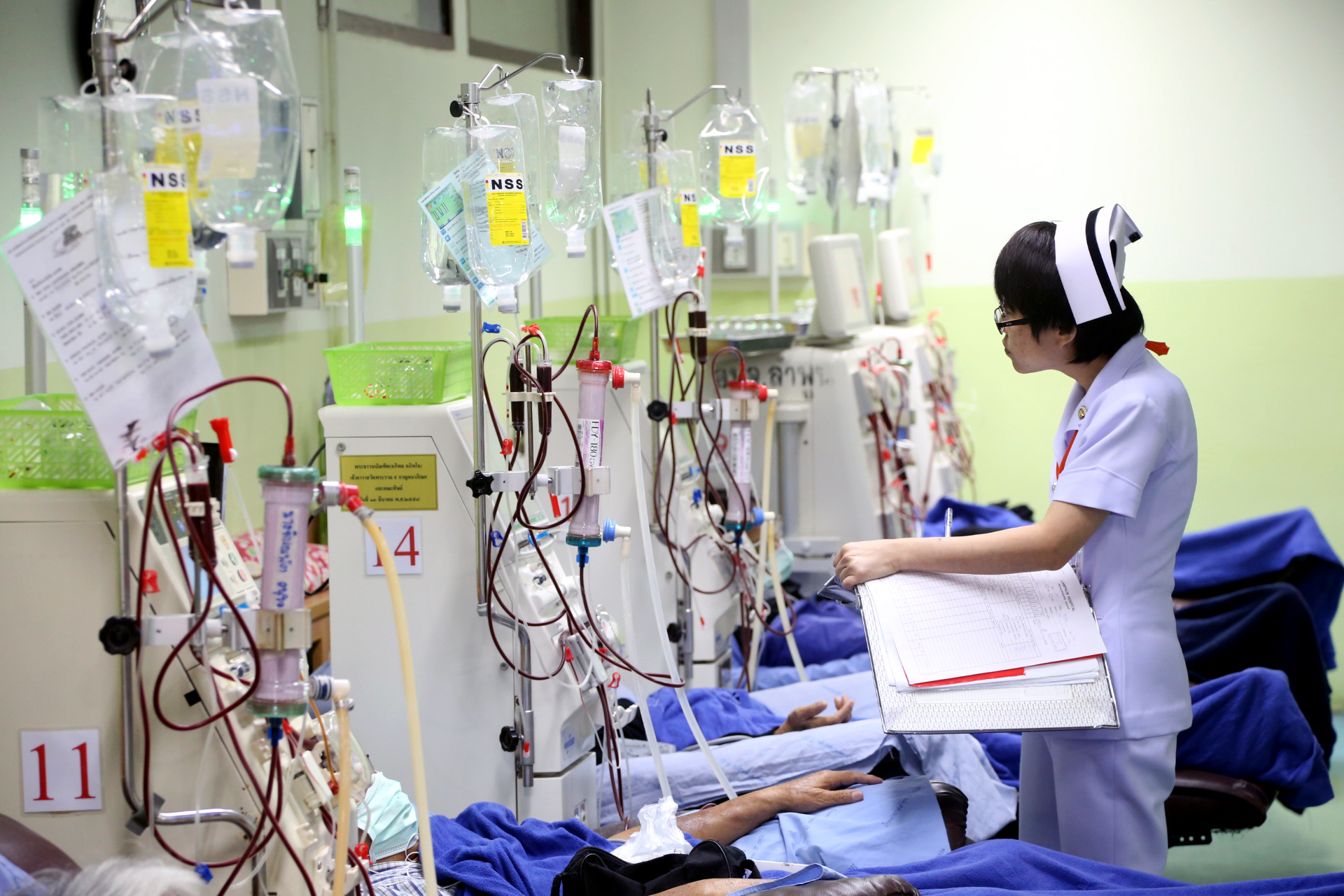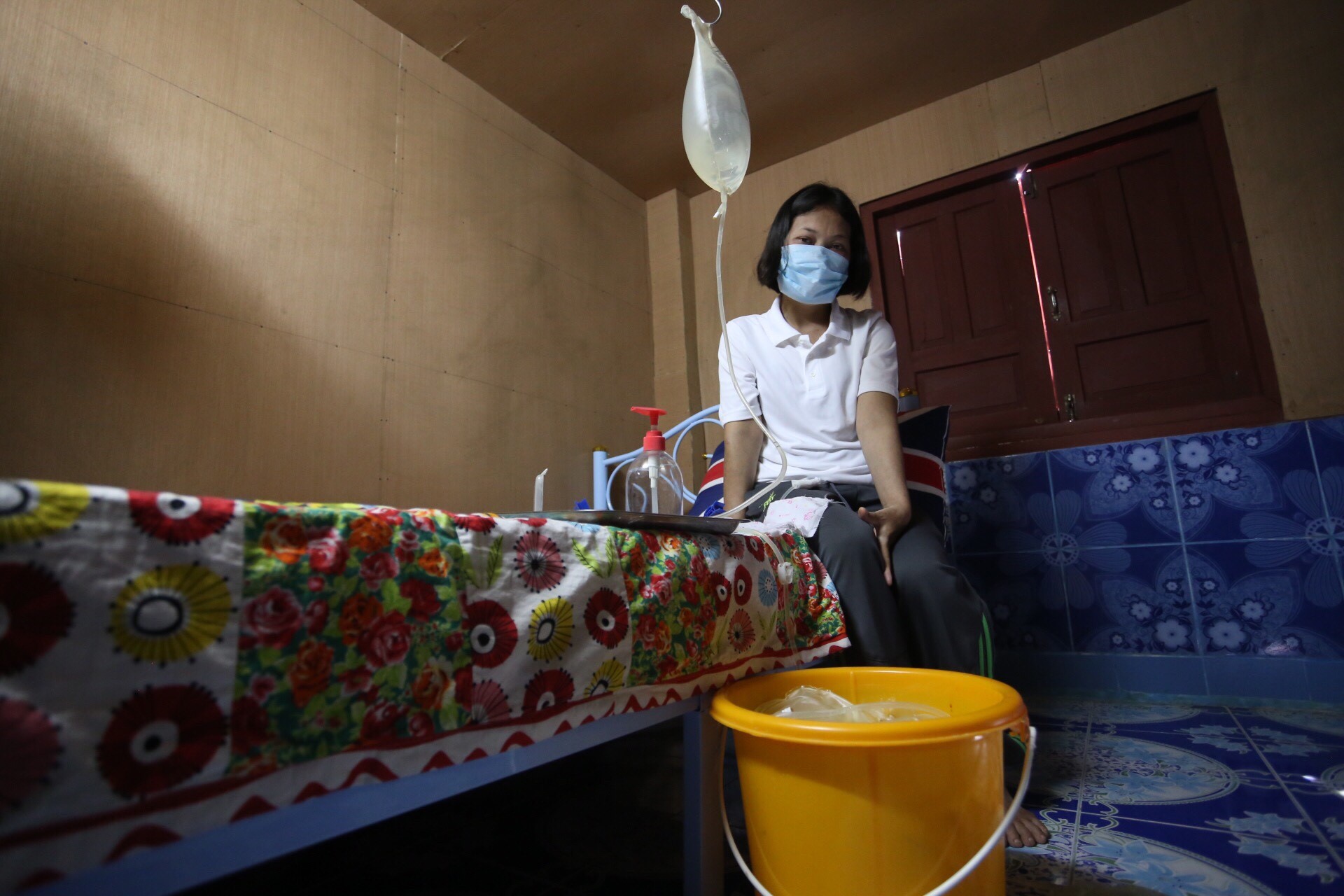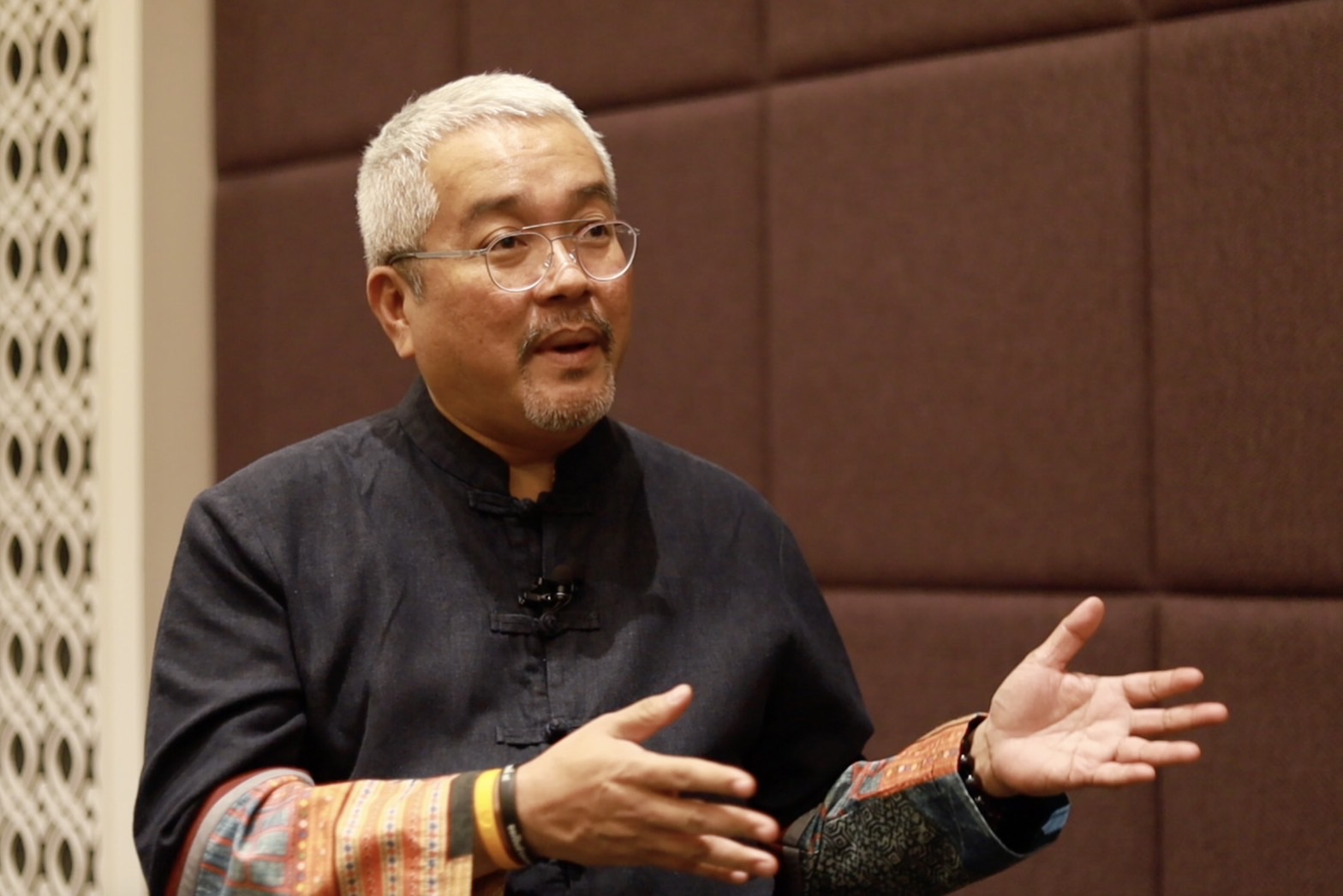
- Home
- DescriptionNews
Demand for hemodialysis center increase
Patients’ demands for hemodialysis center have increased since the National Health Security Office adopted a new resolution that allows patients with end stage kidney disease to select the method of treatment.

However, experts suggest that the other types of treatments are comparable to hemodialysis, and patients should consult physicians to choose the right treatment choice based on their health condition and life context.
People with end-stage kidney disease can access affordable treatments covered by Universal Coverage Scheme (UCS) — the Thai government’s healthcare scheme that ensures healthcare access to 47 million people in Thailand.
These benefits cover services and drugs in all stages of treatments, including temporary and permanent vascular access procedures, erythropoiesis-stimulating agents for correcting anemia that is caused by chronic kidney disease, and immunosuppressant drugs used in patients receiving kidney transplants.

The National Health Security Office Board (NHSB), which oversees the UCS, chaired by Deputy Prime Minister and Minister of Public Health, Anutin Charnvirakul had a resolution early last year, allowing patients with end-stage kidney disease to choose their dialysis methods under the guidance of physicians.
Before adopting this resolution, the choice of treatment depended solely on doctors and the healthcare scheme’s policy,causing inconvenience to the patients and families who could not perform certain tasks required for successful treatments.
For example, some patients, especially those living in densely populated communities or slums, had to perform peritoneal dialysis at home despite poor hygiene.
Many of them don’t have caregivers, resulting in missed dialysis treatments. Some family members had to quit their jobs to take care of the patients and causing financial constraints on the families.

Now patients can choose either home peritoneal dialysis, which also includes automated peritoneal dialysis, or hemodialysis center — allowing patients to receive effective treatment based on their life context.
However, this has increased the number of patients demanding hemodialysis center to 30% and resulting in hospital overcrowding.
Comparable treatments
The NHSO is aware of the increasing demand for hemodialysis center since its board’s adoption of the new resolution and has initiated some alternatives to reduce hospital overcrowding.
Those include the partnerships between private and hospitals, in which the first offer permanent vascular access to UCS beneficiaries to reduce their waiting time at state-run hospitals.
.jpg)
Dr Suchai Sritippayawan, Vice President of the Nephrology Society of Thailand, said that most hospitals and kidney centers in big cities and Bangkok metropolitan region can accommodate more patients requesting hemodialysis.
The challenge remains in the provincial and rural areas where local hospitals have a limited number of nephrologists and equipment, and patients can’t avoid home peritoneal dialysis.
He explained that patients should consider that both types of treatments — home peritoneal dialysis and hemodialysis center — affect their lives.
Home peritoneal dialysis requires patients and their caregivers to learn the method, improve hygiene at home, and perform the treatment every day.
Hemodialysis center, on the other hand, requires patients to visit hospitals two to three times a week. They must spend around four hours on each visit and pay for the travel fees.
But many patients prefer having hemodialysis at hospitals because they misunderstand that peritoneal dialysis is not effective.
“Both treatments are safe. Their effectiveness is comparable. The choice of the treatment depends on the patient’s life context,” confirmed Dr Suchai.
“The dialysis treatment requires patient’s behavioral changes, but it is the only way to help them able to continue their lives.”
He added that the NHSO has supported UCS beneficiaries with home peritoneal dialysis for 16 years while building up knowledge and distributing high-standard equipment needed for the treatment.
Therefore, patients can be confident with the treatment.
Address disease prevention
“Though the new policy allows patients to choose the type of treatment, they must closely consult with physicians to prevent complications during the treatment, said Dr Vuddhidej Ophascharoensuk, President of the Nephrology Society of Thailand.

“For example, some patients must shift from hemodialysis to another type of treatment as it can cause life-threatening low blood pressure and some other complications.”
He added that the major causes of kidney disease in Thailand include diabetes, high blood pressure, and overconsumption of medicines and supplements.
There is a need to address health promotion and disease prevention, including healthy lifestyle and food consumption, to help people avoid kidney disease, he said.
The NHSO has implemented health programs at a local community level by involving local governments in educating people about the health risks and healthy behaviors that can prevent kidney disease.
“We have continued working with local governments in this program to reduce the number of new patients and improve people’s quality of life,” said Dr Jadej Thammatacharee, the NHSO Secretary-General.
/////////////////////////////////////

However, experts suggest that the other types of treatments are comparable to hemodialysis, and patients should consult physicians to choose the right treatment choice based on their health condition and life context.
People with end-stage kidney disease can access affordable treatments covered by Universal Coverage Scheme (UCS) — the Thai government’s healthcare scheme that ensures healthcare access to 47 million people in Thailand.
These benefits cover services and drugs in all stages of treatments, including temporary and permanent vascular access procedures, erythropoiesis-stimulating agents for correcting anemia that is caused by chronic kidney disease, and immunosuppressant drugs used in patients receiving kidney transplants.

The National Health Security Office Board (NHSB), which oversees the UCS, chaired by Deputy Prime Minister and Minister of Public Health, Anutin Charnvirakul had a resolution early last year, allowing patients with end-stage kidney disease to choose their dialysis methods under the guidance of physicians.
Before adopting this resolution, the choice of treatment depended solely on doctors and the healthcare scheme’s policy,causing inconvenience to the patients and families who could not perform certain tasks required for successful treatments.
For example, some patients, especially those living in densely populated communities or slums, had to perform peritoneal dialysis at home despite poor hygiene.
Many of them don’t have caregivers, resulting in missed dialysis treatments. Some family members had to quit their jobs to take care of the patients and causing financial constraints on the families.

Now patients can choose either home peritoneal dialysis, which also includes automated peritoneal dialysis, or hemodialysis center — allowing patients to receive effective treatment based on their life context.
However, this has increased the number of patients demanding hemodialysis center to 30% and resulting in hospital overcrowding.
Comparable treatments
The NHSO is aware of the increasing demand for hemodialysis center since its board’s adoption of the new resolution and has initiated some alternatives to reduce hospital overcrowding.
Those include the partnerships between private and hospitals, in which the first offer permanent vascular access to UCS beneficiaries to reduce their waiting time at state-run hospitals.
.jpg)
Dr Suchai Sritippayawan, Vice President of the Nephrology Society of Thailand, said that most hospitals and kidney centers in big cities and Bangkok metropolitan region can accommodate more patients requesting hemodialysis.
The challenge remains in the provincial and rural areas where local hospitals have a limited number of nephrologists and equipment, and patients can’t avoid home peritoneal dialysis.
He explained that patients should consider that both types of treatments — home peritoneal dialysis and hemodialysis center — affect their lives.
Home peritoneal dialysis requires patients and their caregivers to learn the method, improve hygiene at home, and perform the treatment every day.
Hemodialysis center, on the other hand, requires patients to visit hospitals two to three times a week. They must spend around four hours on each visit and pay for the travel fees.
But many patients prefer having hemodialysis at hospitals because they misunderstand that peritoneal dialysis is not effective.
“Both treatments are safe. Their effectiveness is comparable. The choice of the treatment depends on the patient’s life context,” confirmed Dr Suchai.
“The dialysis treatment requires patient’s behavioral changes, but it is the only way to help them able to continue their lives.”
He added that the NHSO has supported UCS beneficiaries with home peritoneal dialysis for 16 years while building up knowledge and distributing high-standard equipment needed for the treatment.
Therefore, patients can be confident with the treatment.
Address disease prevention
“Though the new policy allows patients to choose the type of treatment, they must closely consult with physicians to prevent complications during the treatment, said Dr Vuddhidej Ophascharoensuk, President of the Nephrology Society of Thailand.

“For example, some patients must shift from hemodialysis to another type of treatment as it can cause life-threatening low blood pressure and some other complications.”
He added that the major causes of kidney disease in Thailand include diabetes, high blood pressure, and overconsumption of medicines and supplements.
There is a need to address health promotion and disease prevention, including healthy lifestyle and food consumption, to help people avoid kidney disease, he said.
The NHSO has implemented health programs at a local community level by involving local governments in educating people about the health risks and healthy behaviors that can prevent kidney disease.
“We have continued working with local governments in this program to reduce the number of new patients and improve people’s quality of life,” said Dr Jadej Thammatacharee, the NHSO Secretary-General.
/////////////////////////////////////

